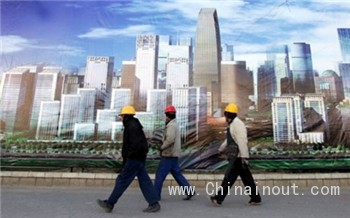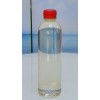现在全世界都在关注希腊,这完全可以理解。对欧元区这个全球第二大经济集团来说,希腊退欧前景是一个生死攸关的问题。然而希腊经济规模还不如智利,而后者明显遭受了更强大的全球经济力量的影响:中国经济放缓和亚洲贸易顺差日益上升。实际上,就这些问题来说,南美几乎是“矿井里的金丝雀”。
迄今受影响最大的是大宗商品。例如,油价本周进入了新的熊市,国际基准的布伦特(Brent)原油下跌至每桶57美元下方。这将影响到从委内瑞拉到俄罗斯的所有石油出口国——本周俄罗斯正在第七届金砖国家(Brics)峰会上作为东道主招待中国、印度、巴西、南非的客人。然而,油价下跌只是更广泛的大宗商品价格暴跌的一部分,后者在中国引领的繁荣结束后就开始了。
这种暴跌让澳大利亚等发达大宗商品国家和大片新兴市场国家(尤其是南美)感到窒息。这体现在南美地区的增长率急剧下降、进口萎缩、贸易逆差扩大和政府支持率暴跌。在巴西,总统迪尔玛•罗塞夫(Dilma Rousseff)领导的政府是1986年独裁政府垮台以来最不受欢迎的;在全球最大的铜生产国智利,总统米歇尔•巴切莱特(Michelle Bachelet)的支持率下降至27%;在哥伦比亚,总统胡安•曼努埃尔•桑托斯(Juan Manuel Santos)的支持率为28%,他正艰难地试图与信奉马克思主义的游击队签署和平协议。整个南美地区上演着类似的故事。在所有地方,领导人支持率下降让他们更难带领国家渡过艰难时日。
然而,让一部分国家受到伤害的因素可能让另一部分国家受益。例如,在欧洲,大宗商品价格下降有助于抵消希腊危机带来的不利影响。石油、金属和农业产品价格下降让通胀保持在低位,并刺激了消费。它也有助于抵消亚洲经济放缓的影响——亚洲经济放缓削弱了欧洲资本品的出口活力。
工业部门与亚洲高度联动的瑞典,自5年前中国经济增长达到峰值以来,贸易收支状况一直在恶化。德国的出口仍有一些增长。但鉴于欧元汇率在过去一年下跌10%,这种表现看起来也不怎么样。有趣的是,德国对中国的资本品出口正在下降,即便中国政府在不断发展本国的资本品行业(尤其是机器人)。美国出口在今年5月也出现了下降,主要原因是对中国的资本品和其他出口下降。
无论是南美的大宗商品,还是发达经济体的资本品,此类贸易疲弱的原因都是亚洲投资缩减。中国进口5月同比大幅下降17.6%,以及亚洲贸易顺差持续上升,都体现了它的巨大影响。咨询公司Andrew Hunt Economics的数据显示,汇总过去12个月的数据,亚洲贸易顺差在今年4月达到约4500亿美元,是希腊经济规模的两倍。遗憾的是,由于这是进口下降而非出口增加导致的,这也是“错误的”的那种顺差。
预测模型显示,复苏的萌芽可能已在美国、日本乃至中国(尽管上海股市大幅下跌)站稳脚跟。然而,亚洲进口缩减依然严重阻碍世界经济增长。由于大宗商品价格暴跌,南美迄今受到的影响最为严重,即便大宗商品价格下跌有助于其他国家。欧洲经济受到的威胁可能远不止希腊危机。(中国进出口网)

The global attention paid to Greece is entirely understandable; the prospect of Grexit is an existential problem for the world’s second largest economic bloc. Yet the Greek economy is smaller than Chile’s, which has suffered vividly from more powerful global economic forces: China’s slowdown and Asia’s growing trade surpluses. Indeed, South America is almost a canary in a coal mine when it comes to these themes.
Their biggest effect so far has been on commodities. Oil prices, for example, entered a new bear market this week, with Brent crude, the international benchmark, dropping below $57 a barrel. That will hurt oil exporting countries everywher, from Venezuela to Russia — which hosts China, India, Brazil and South Africa at the seventh Brics summit this week. Yet the oil price dro is only part of a broader collapse of commodity prices that has followed the end of the China-led boom.
This collapse has knocked the wind out of developed commodity countries, such as Australia, and vast swaths of the emerging world, especially South America. This can be seen in the region’s tumbling growth rates, shrinking imports, widening trade deficits and plummeting government ratings. In Brazil, Dilma Rousseff leads the most unpopular government since the dictatorship era ended in 1986; in Chile, the world’s largest copper producer, President Michelle Bachelet’s ratings have dropped to 27 per cent; in Colombia, wher President Juan Manuel Santos is struggling to make a peace deal with Marxist guerrillas, his approval ratings are 28 per cent. It is a similar story across the region. Everywher, leaders’ rising unpopularity makes it harder for them to steer their countries through leaner times.
Still, what hurts one part of the world can help another. In Europe, for example, lower commodity prices have helped offset the depressing effects of Greece. Cheaper oil, metal and agricultural goods have kept inflation down and provided a fillip for consumers. They have also helped counteract the Asian slowdown, which has sapped the export vigour of Europe’s capital goods.
Sweden, with an industrial sector highly geared to Asia, has suffered deteriorating trade balances since Chinese growth peaked five years ago. Germany still shows some export growth. But the performance looks weak given the euro has dropped 10 per cent in the past year. Anecdotally, German shipments of capital goods to China are falling, even as Beijing continues to develop China’s capital goods sector, especially robotics. US exports also dropped in May, led by weaker capital goods and exports to China.
The reason for such weakening trade, be that of South American commodities or developed economy capital goods — is the cutback in Asian investment. Its dramatic effect can be seen in May’s 17 per cent slump in Chinese imports, and the continuing rise of Asia’s trade surplus. Summed over 12 months, this surplus reached some $450bn in April, according to Andrew Hunt Economics, a consultancy, twice as big as Greece’s economy. Unfortunately, because it is due to less imports rather than more exports, it is also the “wrong” kind of surplus.
Forecasting models suggest a budding recovery may be taking hold in the US, Japan and even China, despite the crumpling Shanghai stock market. Nevertheless, the shrinkage of Asian imports remains a powerful deflator on the world economy. Because of the commodity price collapse, South America has so far suffered the most, even as the cheaper commodities prices have helped others. Europe’s economies may well be threatened by more than events just in Athens.











